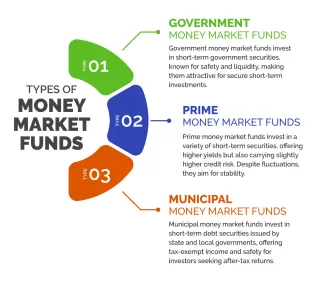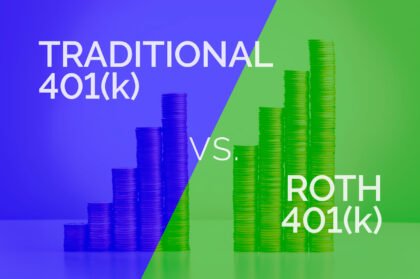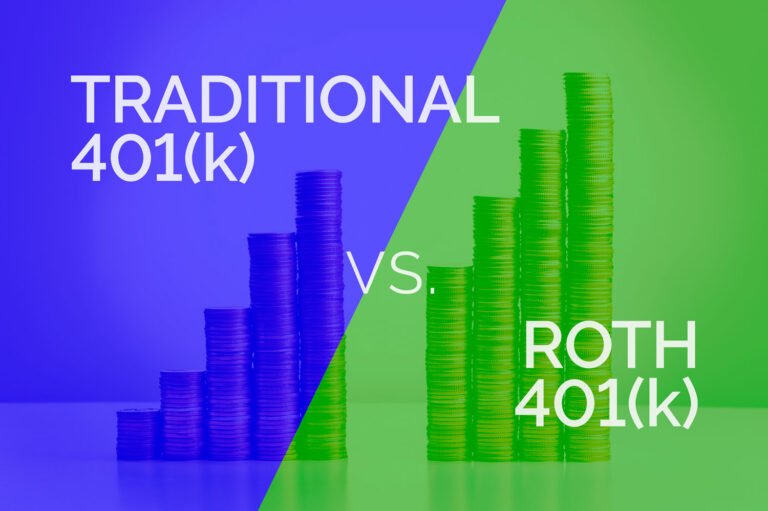Greetings, financial enthuthiasts! Today, we’re delving into the world of “Money Market Funds,” a versatile and accessible investment option that serves as a cornerstone of many investors’ portfolios. Think of a money market fund as the Swiss Army knife of investments, offering liquidity, stability, and a modest return—all in one package. Let’s unpack the mysteries of money market funds and explore why they’re a valuable tool for both novice and seasoned investors alike.
Table of Contents
What are Money Market Funds?
Money market funds are mutual funds that invest in short-term, low-risk securities, such as Treasury bills, commercial paper, and certificates of deposit (CDs). They are designed to provide investors with a safe and liquid way to earn a modest return on their cash reserves while preserving capital and maintaining liquidity.
Key Components of Money Market Funds:
- Portfolio Composition: Money market funds primarily invest in short-term debt securities that are considered to be of high quality. These securities typically include Treasury bills, commercial paper, certificates of deposit (CDs), and short-term bonds issued by governments, municipalities, and corporations. These investments have maturities ranging from a few days to one year, making them relatively low risk compared to longer-term investments.
- Net Asset Value (NAV): The NAV of a money market fund represents the per-share value of the fund’s assets minus its liabilities. Money market funds aim to maintain a stable NAV, typically at $1 per share. This stability is achieved by investing in highly liquid and low-risk securities. Maintaining a stable NAV is important for investors as it helps to preserve the principal value of their investment. However, it’s important to note that while stability is a primary goal, there can be rare instances where the NAV deviates slightly from $1, known as “breaking the buck.”
- Liquidity: One of the key advantages of money market funds is their high level of liquidity. Investors can easily buy or sell shares of the fund on any business day at the current NAV. This liquidity is facilitated by the short-term nature of the underlying investments held by the fund. As a result, investors have quick access to their funds without incurring significant transaction costs or facing lengthy settlement periods.
- Yield: Money market funds aim to generate a modest return for investors while preserving capital and maintaining liquidity. However, due to the conservative nature of their investments and the short duration of the securities held, the yields offered by money market funds are typically lower compared to other investment options such as stocks or bonds. Despite the lower yield, money market funds are favored by investors seeking stability and liquidity in their investment portfolio, particularly for short-term cash management needs or as a safe haven during volatile market conditions.
Types of Money Market Funds

Government Money Market Funds
Government money market funds primarily invest in short-term securities issued by government entities, such as Treasury bills (T-bills) and agency securities (issued by government-sponsored enterprises like Fannie Mae and Freddie Mac). These funds are widely regarded as among the safest types of money market funds due to the high credit quality of the underlying government securities. Government money market funds typically offer stability of principal, liquidity, and relatively low yields, making them attractive options for investors seeking safety and liquidity for their cash reserves or short-term investments.
Prime Money Market Funds
Prime money market funds invest in a broader range of short-term securities compared to government money market funds. In addition to government securities, prime funds may also invest in commercial paper issued by corporations, bank obligations, and other short-term debt instruments. Prime money market funds may offer slightly higher yields compared to government funds due to the potentially higher returns from corporate securities. However, they may also carry slightly higher risk, primarily credit risk, as they invest in a wider array of issuers. During periods of economic uncertainty or market stress, prime funds may experience fluctuations in their NAVs, although they still aim to maintain a stable value.
Municipal Money Market Funds
Municipal money market funds invest in short-term debt securities issued by state and local governments and their agencies. These securities include tax-exempt municipal bonds and notes. Municipal money market funds offer tax-exempt income for investors subject to federal income tax, and they may also be exempt from state income tax for residents of the issuing state, depending on the securities held within the fund. Similar to government money market funds, municipal funds are considered relatively safe investments due to the credit quality of the issuers, although there may be variations in risk depending on the specific securities held within the fund. Investors often consider municipal money market funds as a way to potentially enhance after-tax returns while maintaining liquidity and stability.
Why Money Market Funds Matter:
- Capital Preservation: Money market funds are designed with a primary focus on capital preservation. By investing in high-quality, short-term debt securities with minimal credit risk, these funds aim to safeguard investors’ principal investments. This feature makes money market funds particularly appealing to conservative investors who prioritize stability and security in their investment choices. Even though the returns generated by money market funds may be modest, the assurance of capital preservation provides peace of mind, especially during volatile market conditions.
- Liquidity: High liquidity is a hallmark of money market funds. Investors can easily convert their shares into cash or purchase additional shares at any time during regular business hours. This level of liquidity provides flexibility and ensures that investors have quick access to their funds when needed, without incurring significant transaction costs or facing lengthy settlement periods. The ability to swiftly access cash reserves makes money market funds an attractive option for both short-term cash management needs and emergency expenses.
- Stability: Money market funds prioritize stability by investing in low-risk securities with short maturities. By avoiding long-term investments and focusing on highly liquid assets, these funds mitigate the impact of market fluctuations. Consequently, the NAV of money market funds tends to experience minimal volatility, helping investors maintain a consistent and predictable value for their investments. This stability makes money market funds particularly suitable for preserving wealth, managing cash reserves, and navigating uncertain economic conditions.
- Diversification: Money market funds offer diversification benefits by investing in a range of short-term securities issued by various entities, such as governments, financial institutions, and corporations. This diversification spreads risk across different issuers, sectors, and maturities, reducing the impact of potential defaults or credit events on the overall portfolio. By spreading risk, money market funds enhance the resilience of investors’ capital and contribute to a more stable investment experience, even in challenging market environments.
- Convenience: Money market funds are known for their simplicity and ease of access, making them suitable for both individual and institutional investors. These funds can be easily purchased through brokerage accounts, mutual fund platforms, or directly from fund providers. Additionally, money market funds typically offer features such as check-writing privileges, electronic fund transfers, and automated investment options, enhancing convenience and accessibility for investors. The straightforward nature of money market funds appeals to those seeking hassle-free investment solutions and efficient cash management tools.
Considerations and Risks:
- Low Yields: While money market funds offer stability and liquidity, they typically provide lower yields compared to other investment options, such as stocks or bonds.
- Interest Rate Risk: Money market fund returns may be affected by changes in interest rates, although this risk is generally lower compared to longer-term bond funds.
- Credit Risk: Although money market funds invest in high-quality securities, there is still a risk of default by issuers, particularly in the case of prime money market funds investing in commercial paper.
- Potential for Loss of Purchasing Power: In periods of high inflation, the returns from money market funds may not keep pace with rising prices, leading to a loss of purchasing power over time.
How to Invest in Money Market Funds:
- Choose a Fund: Research and select a money market fund that aligns with your investment objectives, risk tolerance, and liquidity needs. The Office of Financial Research, a government agency, is a great place to start.
- Open an Account: Contact a brokerage firm or financial institution to open an account and invest in the chosen money market fund.
- Fund Your Account: Transfer funds from your bank account or other investment accounts to purchase shares of the money market fund.
- Monitor and Rebalance: Periodically review your investment portfolio and adjust your allocation to money market funds as needed to maintain your desired asset mix.
In Conclusion
Money market funds are a versatile and essential component of any well-rounded investment strategy, offering stability, liquidity, and modest returns for investors seeking to preserve capital and manage short-term cash needs. By understanding the key characteristics, benefits, and considerations of money market funds, you can leverage them effectively to achieve your financial goals and navigate the ever-changing landscape of the financial markets. So, may your investments remain stable, your cash reserves readily available, and your financial journey guided by prudence and foresight. Happy investing!


